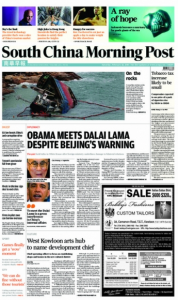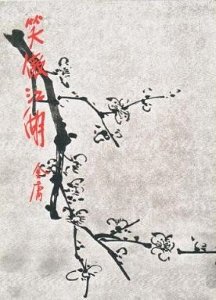SCMP是最合適用來學習英文,當中英語的用法及詞彙,可以說是全亞洲中的最高水平之一。
A letter from the editors
We read the Hong Kong Standard’s report on A2, “Self-Censorship whiff in ‘locust’ ban” with surprise.
For those who missed it, the senior South China Morning Post editors decided to issue guidance to our newsroom on the use of emotive words, specifically the term “locust”, a patently offensive term used by a group of Hong Kong protesters to describe mainland Chinese.
The Standard wrote about our decision on Wednesday (Feb 26), postulating that it may have been driven by self-censorship and quoted an academic who interpreted our move as being too sensitive.
Both are wrong. Our guidance is simply good, responsible, basic journalism.
We thought we would share with readers the guidance so you can be clear of our intentions:
“We started from the position that the SCMP stands for responsible journalism which is free from bias. We do not stereotype, we do not tolerate bigotry or prejudice and we do not use racial epithets.
“The term ‘locust’ is clearly being employed as a slur and there is no reason for such inflammatory language to routinely feature on our news file and risk becoming seen as SCMP-endorsed shorthand to describe people from the mainland.
“Our decision to allow use of the word only when absolutely necessary, for instance if it appears in a direct quote essential to the story, is simply a matter of basic journalism. Using emotive words sparingly and taking a neutral, balanced approach to such issues is what we are all taught as trainees.
“Sticking to fair, factual and objective reporting of the most sensitive and emotionally-charged issues that affect our readers is vital to our ability to retain our hard-earned reputation as a responsible, impartial, even-handed news organisation.”
We already employed the policy to handle slurs against other ethnic and religious groups. We simply expanded it to cover another epithet.
Our policy is not being “overwhelmingly sensitive” to mainlanders, as the assistant professor quoted by the Standard put it. It is not about self-censorship. It is about fairness, tolerance and balance.
We suggest the Hong Kong Standard and other local news organisations who printed similar articles review their own policies towards racial epithets and hate speech.
With kind regards,
The Editors




